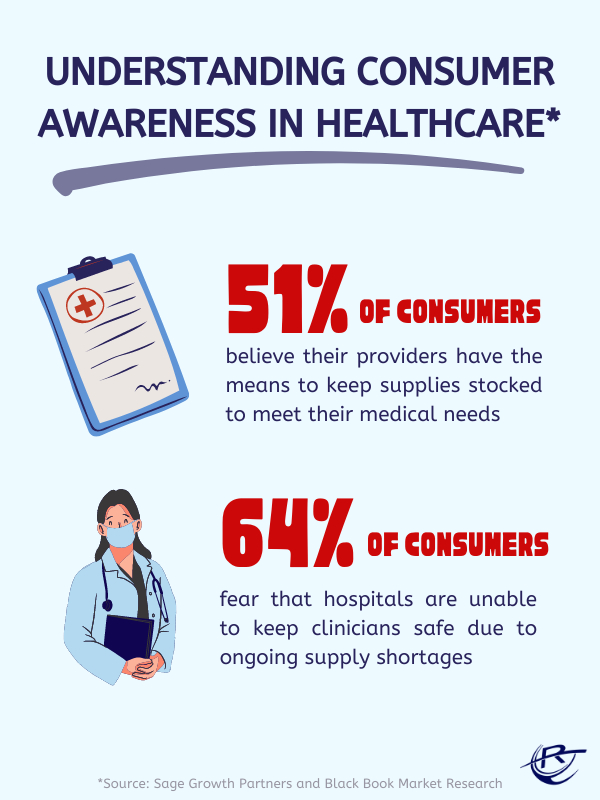
Patient care is reliant on an adaptive supply chain—healthcare’s backbone. A patient undergoing treatment needs a consistent supply of certain drugs. An elderly patient with physical restraints needs access to mobility aids such as walkers, wheelchairs, and rollators. An injured party rushed into the emergency room (ER) needs life-saving drugs and medical equipment to make it through surgery.
Supply chain disruptions don’t just affect pharmaceutical companies and distributors. They make it difficult for pharmacies and healthcare providers to provide their patients with optimal patient care.
Supply shortages in 2022
The U.S. healthcare system continues to face a number of supply shortages ranging from syringes and needles to antibiotics and pain medications. Such shortages often force healthcare providers to seek alternative treatment procedures in order to continue care for patients in need.
Factors contributing to supply shortages include:
- Component scarcities which limit the manufacturer’s ability to keep up with product demand.
- Backlogged ports that continue to slow the intake and distribution of transatlantic shipments.
- Transportation delays brought about by internal and external factors.
- Geopolitical events inadvertently causing inadequate access to raw materials.
Over 10% of often-used stocked items required for patient treatment remain unfilled in the healthcare industry as a whole. That’s a significant difference when average fill rates previously sat between 96% and 98%. What this influx of unfilled orders ultimately equates to is declining patient care, leading pharmacies and healthcare providers to avoid disruptions by stockpiling supplies.
Addressing supply chain challenges
The challenges the pharmaceutical supply chain faces today are just as complex as the supply chain itself and have the potential to continue well into 2023. One snag in the supply chain can cause a domino effect and, in turn, impact the total costs from manufacturing to transportation.
It’s a chain reaction that has invited healthcare professionals to stop and reassess their priorities to maintain optimal patient care during any periods of supply chain distress. According to a survey of 138 healthcare leaders, supply chain management is now the second most important priority—only outranked by patient safety. The survey concluded that supply chain analytics has also become increasingly important in day-to-day operations.

Healthcare professionals can increase supply chain resiliency by:
- Establishing contingency plans to address supply chain disruptions. Updating previous contingency plans should include sourcing alternative resources and forming healthcare coalitions to share scarce resources in the case of an emergency or major supply chain disruption.
- Automating planning and management systems that support efficient tracking and analyzing of data throughout the ordering process. This will enable them to respond to shortages in a timely fashion while also utilizing the limited resources on hand.
- Leveraging AI-based analytics to forecast supply shortages and possible supply chain disruptions. New technology helps pharmacies and healthcare providers maintain visibility within their supply chain, making it easier for them to spot discrepancies before they snowball.
Prioritizing supply chain management and allocating more resources to it means better patient care.
Providing optimal patient care with Reliance Wholesale
Reliance Wholesale works with professionals in the healthcare industry to ensure their patients have access to the critical life-saving prescription drugs they need when they need them. Our pharmaceutical wholesale distribution services include cold chain management, freight consolidation, carrier management, recall management, order tracking, and FIFO/FEFO inventory control.
We remedy the uncertainty of supply disruptions by monitoring supply and demand to minimize lags in patient care. Each client is assigned a customer care representative from our dedicated Reliance team. This allows for our wholesale distribution services to be customized to fit your pharmacy or healthcare facility’s unique needs and provides uninterrupted logistic solutions to supply chain issues in real-time. By focusing on order accuracy and cost-effective transportation, we are able to maintain a steady supply of products so our clients can focus on what matters most—providing optimal patient care.
You have our promise that we will not rest until you are completely satisfied.
Don’t compromise your patient care standards. Contact us today and find out how our wholesale distribution services can help you improve your supply chain.


